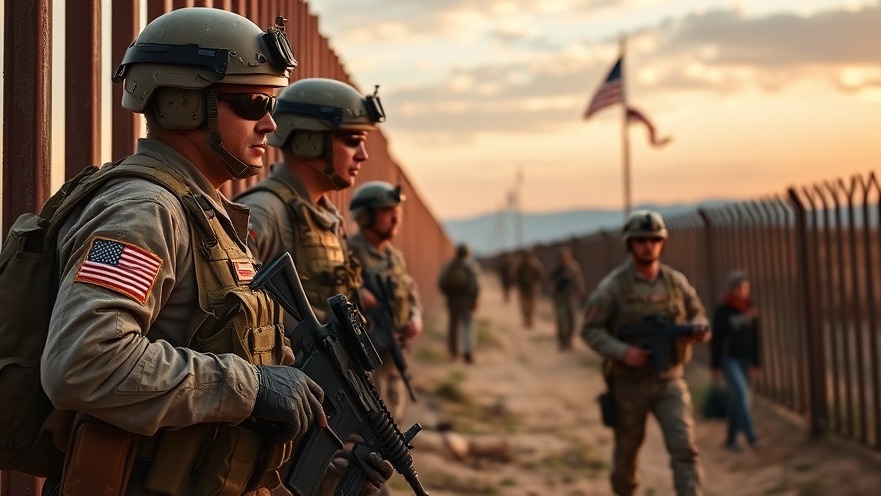
Understanding the New Military Zone Designation at the Texas Border
The Defense Department's recent decision to designate a second military zone on the U.S.-Mexico border, particularly adjacent to the Fort Bliss Army base in El Paso, marks a significant shift in immigration enforcement strategies. This new zone follows a similar declaration in New Mexico and is a part of broader efforts to enhance border security amidst ongoing immigration debates.
What Does This Military Zone Mean for Border Security?
By establishing a military zone, the government aims to increase its operational capacity to address illegal border crossings. General Gregory Guillot, the commander of the U.S. Northern Command, emphasized that this move would expand the military's reach in deterring illegal activities, signaling a proactive approach to managing border security. Under this framework, military personnel are authorized to detain migrants who cross the border illegally, holding them until they can be handed over to civilian authorities.
Legal Implications for Migrants and Military Operations
The introduction of the military zones brings several legal ramifications. Migrants detained in these areas face the possibility of prosecution for two significant offenses: illegally entering the U.S. and trespassing on military property. The military's involvement in immigration enforcement also raises questions based on long-standing laws that limit military authority in domestic law enforcement.
Broader Context: Past Military Deployments at the Border
This isn't the first time the U.S. military has been deployed to assist with border security. In the Trump administration, there was an increase in military presence at the border amid a significant drop in arrests following stricter immigration policies. Such historical context helps to frame the current decision, illustrating a pattern of escalating or de-escalating border control measures depending on the political landscape.
Community Response and Concerns in Dallas and Beyond
As these military zones develop, there is a wide range of reactions from local communities and advocacy groups. Concerns about the humanitarian treatment of migrants have been voiced, alongside debates regarding public safety and the effectiveness of military involvement in immigration issues. For many in Dallas and surrounding areas, the implications of this decision reverberate as they process how federal policies shape local environments and community interactions.
What Lies Ahead: Future Implications for Border Policy
As the second military zone takes effect, discussions on the future of U.S. border policy are likely to intensify. With upcoming elections, specifically the Dallas mayoral elections in 2025, candidates will need to articulate their positions on immigration, military involvement at the border, and public safety to resonate with the electorate. Residents will be watching closely to see how these decisions influence broader community dynamics and political stances in Dallas.
Conclusion: Staying Informed and Engaged
In light of these developments, it is essential for members of the community to stay informed about immigration policies and their implications. Local news sources in Dallas, including updates on public safety, local politics, and community engagements, will be critical in navigating the evolving landscape of border security and immigration enforcement.
Understanding the intricacies of these policies can empower residents to voice their perspectives and engage civically. Remaining engaged and informed is vital as changes unfold that may impact daily life in the region.
 Add Element
Add Element  Add Row
Add Row 



 Add Row
Add Row  Add
Add 


Write A Comment